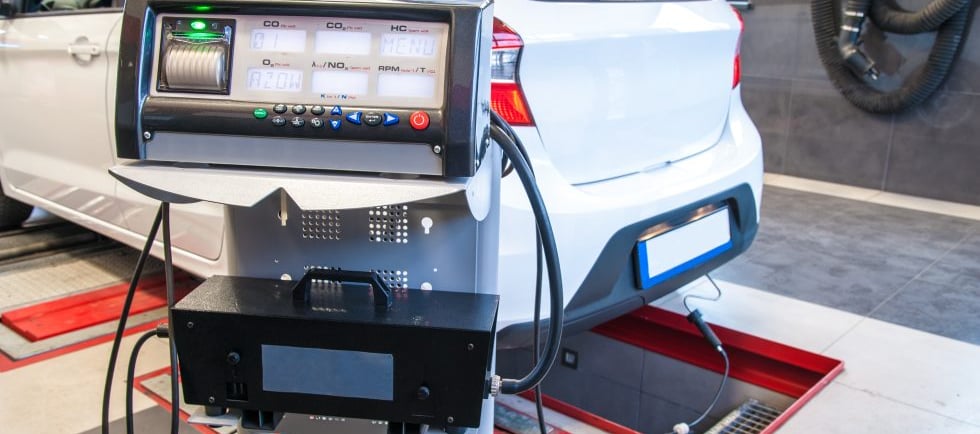Smog Test Guide: How to Pass and Maintain Vehicle Emissions
Prepare for your smog test with these tips. Learn how to maintain your vehicle’s emissions system, avoid common failures, and keep your car compliant with regulations.
J. Avila
10/13/20252 min read


Why Smog Tests Are Important
Smog tests, also called emissions inspections, are required in many states to reduce air pollution and ensure vehicles meet environmental standards. Vehicles release pollutants like carbon monoxide, nitrogen oxides, and hydrocarbons, which can harm public health and the environment.
Passing a smog test not only keeps you compliant with the law but also ensures your engine is running efficiently. Poor emissions performance can indicate issues with the fuel system, ignition, or exhaust components.
What a Smog Test Measures
Modern smog tests evaluate several key components of your vehicle’s emissions system:
Exhaust Gas Analysis: Measures levels of carbon monoxide, hydrocarbons, and nitrogen oxides.
On-Board Diagnostics (OBD-II) Check: Scans for engine error codes related to emissions, catalytic converter performance, or oxygen sensors.
Evaporative Emissions Test: Detects fuel vapor leaks in the fuel system.
For hybrid vehicles, emissions inspections often rely heavily on OBD-II data, since the electric motor reduces exhaust output but still requires a functioning engine system.
Common Reasons Cars Fail Smog Tests
Some of the most frequent causes of smog test failure include:
Check Engine Light On: Any active error code can result in an automatic fail.
Faulty Oxygen Sensors: These sensors monitor engine efficiency and fuel mixture.
Worn Spark Plugs or Ignition Components: Can cause incomplete combustion, increasing emissions.
Clogged Catalytic Converter: Reduces the ability to convert harmful gases.
Exhaust Leaks: Even minor leaks can increase pollutant levels.
Ignoring these issues can lead to expensive repairs and repeated failed inspections.
Tips to Prepare Your Car for a Smog Test
Check Engine Light: Fix any issues triggering the light before the test.
Warm Up Your Vehicle: A fully warmed engine runs more efficiently and reduces emissions.
Change Oil and Filters: Clean oil and a fresh air filter improve engine combustion.
Top Off Fluids: Ensure fuel, coolant, and other essential fluids are at proper levels.
Inspect Exhaust System: Fix leaks, damaged pipes, or loose components.
For hybrids, make sure the battery and regenerative braking system are functioning normally, as these can indirectly affect emissions readings.
How Often Should You Test?
Most states require emissions testing every 1–2 years, depending on your registration and local regulations.
New vehicles often have a grace period for the first few years, but it’s wise to check state requirements.
Vehicles with recent engine repairs should be tested only after resolving issues to avoid failing.
What Happens If You Fail a Smog Test?
Failing a smog test doesn’t mean you’re stuck. Here’s what to do:
Get a Diagnostic Check: A professional can pinpoint the issue, whether it’s the catalytic converter, oxygen sensor, or engine misfire.
Repair the Problem: At Blue Car Group, we specialize in emissions-related repairs for hybrids and traditional vehicles.
Retest: After repairs, a follow-up test is required to confirm compliance.
Skipping repairs or retests can result in fines, registration delays, and potential environmental harm.
Long-Term Tips to Keep Emissions Low
Regular Maintenance: Keep spark plugs, filters, and fluids in top condition.
Drive Smoothly: Avoid rapid acceleration and excessive idling, which increase emissions.
Hybrid Care: Ensure your electric and gas components are balanced for optimal performance.
Fuel Quality: Use the correct fuel grade recommended for your vehicle.
Routine care not only helps you pass smog tests but also improves fuel economy and vehicle lifespan.
Why Choose Blue Car Group for Emissions & Smog Prep
At Blue Car Group, we provide:
Pre-smog inspections to identify potential issues before testing
OBD-II diagnostics and hybrid system checks
Exhaust and catalytic converter repairs
Expert advice on improving emissions and fuel efficiency
With our professional guidance, you can pass your smog test confidently and maintain a cleaner, more efficient vehicle.
Schedule a smog readiness check with Blue Car Group today — keep your car legal, safe, and environmentally friendly!

